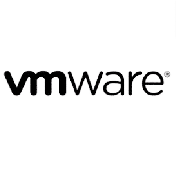Seminarinhalt
In this course, you will implement data science techniques in order to address business issues. You will:
- Use data science principles to address business issues
- Apply the extract, transform, and load (ETL) process to prepare datasets
- Use multiple techniques to analyze data and extract valuable insights
- Design a machine learning approach to address business issues
- Train, tune, and evaluate classification models
- Train, tune, and evaluate regression and forecasting models
- Train, tune, and evaluate clustering models
- Finalize a data science project by presenting models to an audience, putting models into production, and monitoring model performance
Programm
- Initiate a Data Science Project
- Formulate a Data Science Problem
- Extract Data
- Transform Data
- Load Data
- Explore the Underlying Distribution of Data
- Use Visualizations to Analyze Data
- Preprocess Data
- Designing a Machine Learning Approach
- Identify Machine Learning Concepts
- Test a Hypothesis
- Train and Tune Classification Models
- Evaluate Classification Models
- Train and Tune Regression Models
- Evaluate Regression Models
- Train and Tune Clustering Models
- Evaluate Clustering Models
- Communicate Results to Stakeholders
- Demonstrate Models in a Web App
- Implement and Test Production Pipelines
Zielgruppen
However, there is not necessarily a single organizational role that this course targets. A prospective student might be a programmer looking to expand their knowledge of how to guide business decisions by collecting, wrangling, analyzing, and manipulating data through code; or a data analyst with a backgroundin applied math and statistics who wants to take their skills to the next level; or any number of other datadriven situations. Ultimately, the target student is someone who wants to learn how to more effectively extract insights from their work and leverage that insight in addressing business issues, thereby bringing greater value to the business.
This course is also designed to assist students in preparing for the CertNexus® Certified Data Science Practitioner (CDSP) (Exam CDSP-210) certification.
Vorkenntnisse
In addition to programming, you should also have experience working with databases, including querying languages like SQL. Several Logical Operations courses can help you attain this experience:
- Database Design: A Modern Approach
- SQL Querying: Fundamentals (Second Edition)
- SQL Querying: Advanced (Second Edition)
Wichtige Information
In person at Pearson VUE test centers or
EXAM DURATION:
120 minutes (including 5 minutes for Candidate Agreement and 5 minutes for Pearson VUE tutorial)



